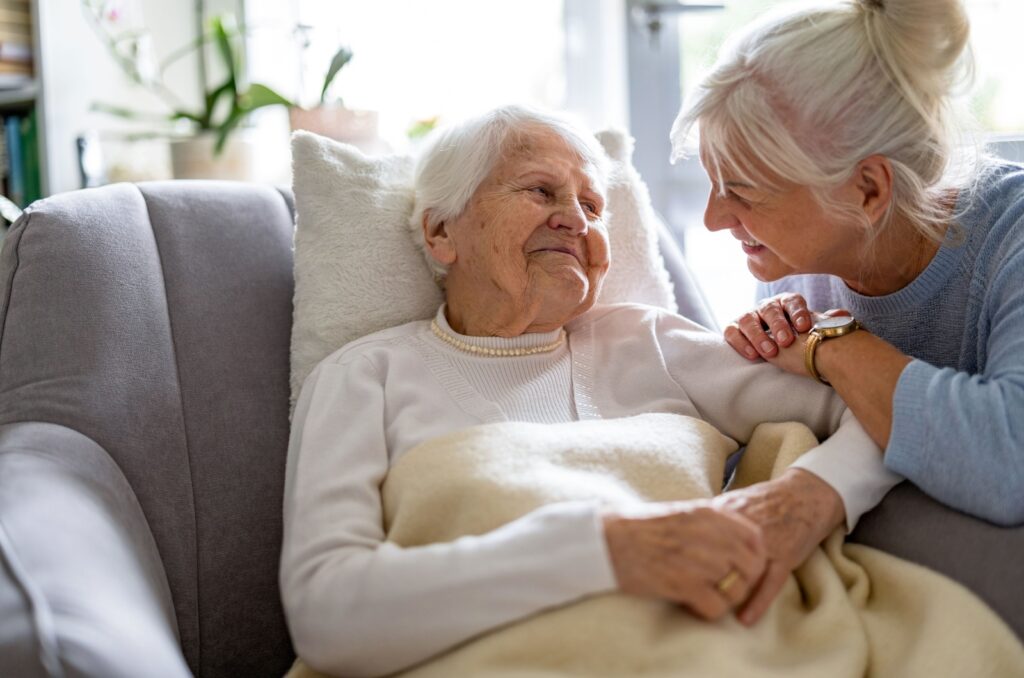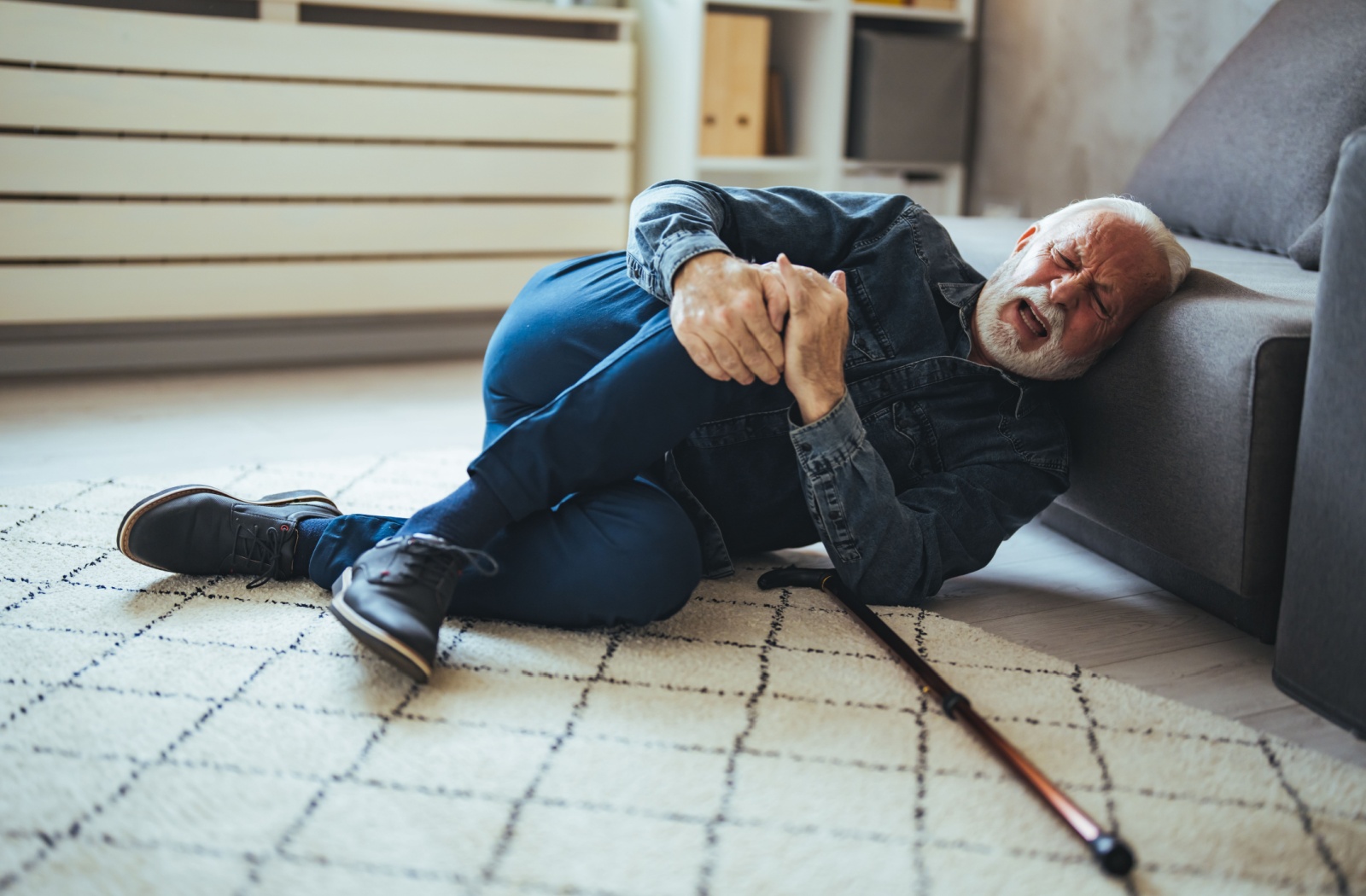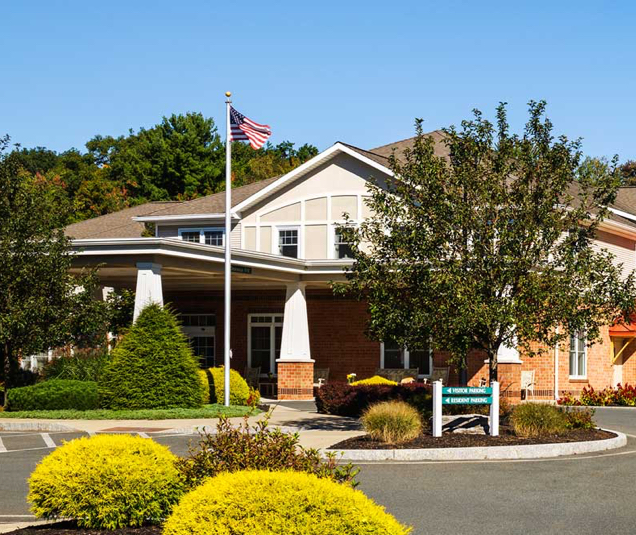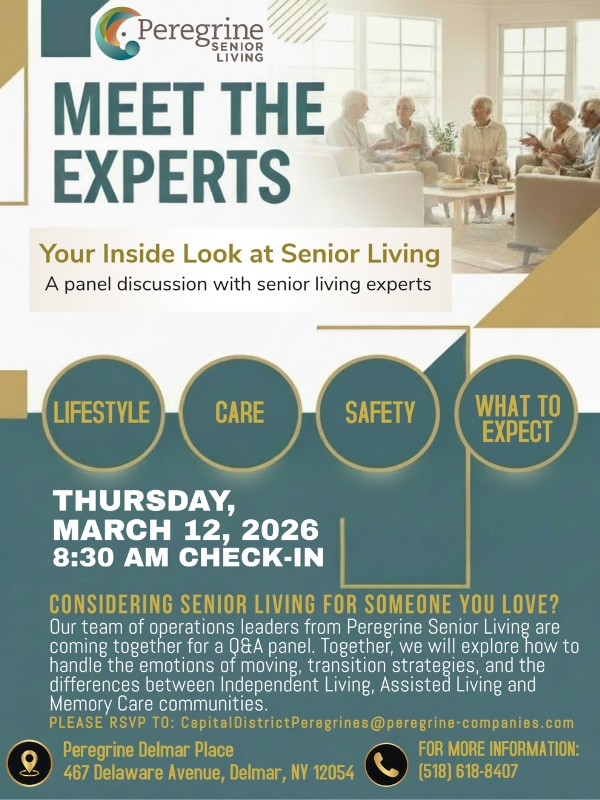Falls are a serious concern for aging adults, often signaling underlying health or environmental issues that need attention. If your parent keeps falling, it’s essential to assess their health, home environment, and daily habits to identify and address potential risks. By understanding the causes and implementing preventive measures, you can help protect your parent’s safety and well-being.
At Peregrine Senior Living, we offer supportive environments designed with safety in mind, such as our assisted living communities and respite care services. These services prioritize the health and comfort of residents while providing peace of mind for families.
Why Falls Happen
Falls can occur for various reasons, and identifying the root cause is the first step in preventing them.
Health Conditions
Certain medical issues, such as arthritis, can impact balance and mobility. Cognitive impairments like Alzheimer’s or dementia may also increase fall risks due to decreased spatial awareness and coordination.
Home Hazards
Cluttered hallways, slippery floors, and inadequate lighting are common hazards in many homes. Making small adjustments can greatly reduce these risks, especially in high-traffic areas like bathrooms and stairs.
Medication Side Effects
Some medications can cause dizziness or impair coordination. It’s important to review your parent’s prescriptions regularly to ensure there are no harmful interactions or side effects contributing to falls.
Steps to Take After a Fall
If your parent has experienced a fall, taking swift action is essential to ensure their safety and well-being.
Assess Their Condition
Check for visible injuries and ask if they are experiencing pain or discomfort. If necessary, contact medical professionals for immediate assistance.
Evaluate the Environment
Determine what caused the fall. Was it a slippery surface, loose carpet, or another hazard? Identifying these issues can help prevent future accidents.
Follow Up with Healthcare Providers
Schedule an appointment with a doctor to rule out underlying medical conditions that may have contributed to the fall. Regular health checkups are also vital for monitoring your parent’s overall health.
Preventing Falls
Taking proactive measures can significantly reduce the likelihood of falls and enhance your parent’s quality of life.
Home Modifications
Making adjustments in your parent’s home can create a safer living space. Consider installing grab bars in bathrooms, removing tripping hazards like loose rugs, and ensuring all rooms are well-lit.
Encourage Physical Activity
Exercise improves strength, balance, and flexibility, all of which are crucial for fall prevention. Regular physical activity offers significant health benefits for older adults, enhancing mobility and reducing the risk of falls.
Health Monitoring
Regular doctor visits can help manage conditions like arthritis or vision problems that increase fall risks. Addressing medication side effects or chronic conditions early can prevent future incidents.

When Assisted Living May Be Necessary
If falls become frequent despite preventive measures, it may be time to consider professional support. Assisted living communities, like those offered by Peregrine Senior Living, provide a safe environment tailored to the needs of older adults.
Benefits of Assisted Living
Assisted living communities offer amenities such as accessible living spaces designed to reduce fall risks, trained staff available around the clock, and engaging activities and events that promote physical and mental well-being.
How to Know It’s Time
Signs such as frequent falls, difficulty with daily tasks, or concerns about safety may indicate that assisted living is the right choice. Learn more about when it’s time for assisted living and how to choose the right community.
Supporting Your Parent Through the Transition
Discussing the move to assisted living can be emotional. It’s important to approach the conversation with empathy and involve your parent in the decision-making process.
Explore Options Together
Visiting assisted living communities and discussing available amenities can help your parent feel more comfortable with the idea. Showing them how these environments promote safety and independence may ease their concerns.
Highlight Benefits
Focus on how assisted living can improve their quality of life, from nutritious dining options to social opportunities that foster connection and engagement.
Why Prevention Matters
Preventing falls is about more than safety—it’s about preserving independence and dignity. Regular health monitoring, home adjustments, and professional care all contribute to reducing fall risks and supporting your parent’s well-being.
Peregrine Senior Living: A Safe and Supportive Environment
At Peregrine Senior Living, we understand the challenges families face when addressing fall risks for aging parents. Our communities are designed to promote safety, comfort, and independence, offering services like respite care and assisted living.
Book a tour or contact us today to see how we can support your family and provide peace of mind for your loved one.













Happy March! Please see link to our calendar!
... See MoreSee Less
view.illustratus.com
illst.us
0 CommentsComment on Facebook
World’s tallest leprechaun kicking off the St. Patrick’s festivities 🍀💚 ... See MoreSee Less
1 CommentsComment on Facebook
Dining at our community is about more than what’s on the plate—it’s about connection, community, and the joy of gathering together.
Our talented culinary team crafts meals that are both delicious and nutritious, offering flavors that comfort and inspire.
From themed dinners to chef demonstrations, each meal becomes an opportunity to savor the moment and celebrate life’s simple pleasures. 🍴
peregrinedelmarplace.com/ ... See MoreSee Less
0 CommentsComment on Facebook
Today we celebrate the caregivers—those whose quiet strength and unwavering compassion bring comfort to so many.
We see the difference caregivers make every day: holding a hand, sharing a smile, or offering reassurance when it’s needed most. 💕
Your dedication reminds us that true care goes beyond tasks—it’s an act of love, patience, and humanity.
Thank you for all you do to make the world a more compassionate place.
peregrinedelmarplace.com/ ... See MoreSee Less
1 CommentsComment on Facebook
Thank you to Jude and her team at Mary Kay for the valentine gifts. ... See MoreSee Less
1 CommentsComment on Facebook
Thank you to the Tri County Banjo Band for playing for us. Everyone loved it!🪕 ... See MoreSee Less
0 CommentsComment on Facebook
Celebrating Valentine’s Day with Wally! ... See MoreSee Less
0 CommentsComment on Facebook